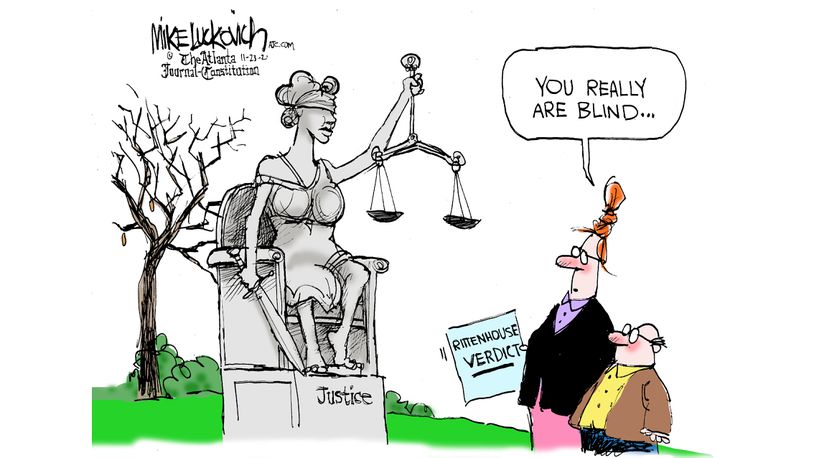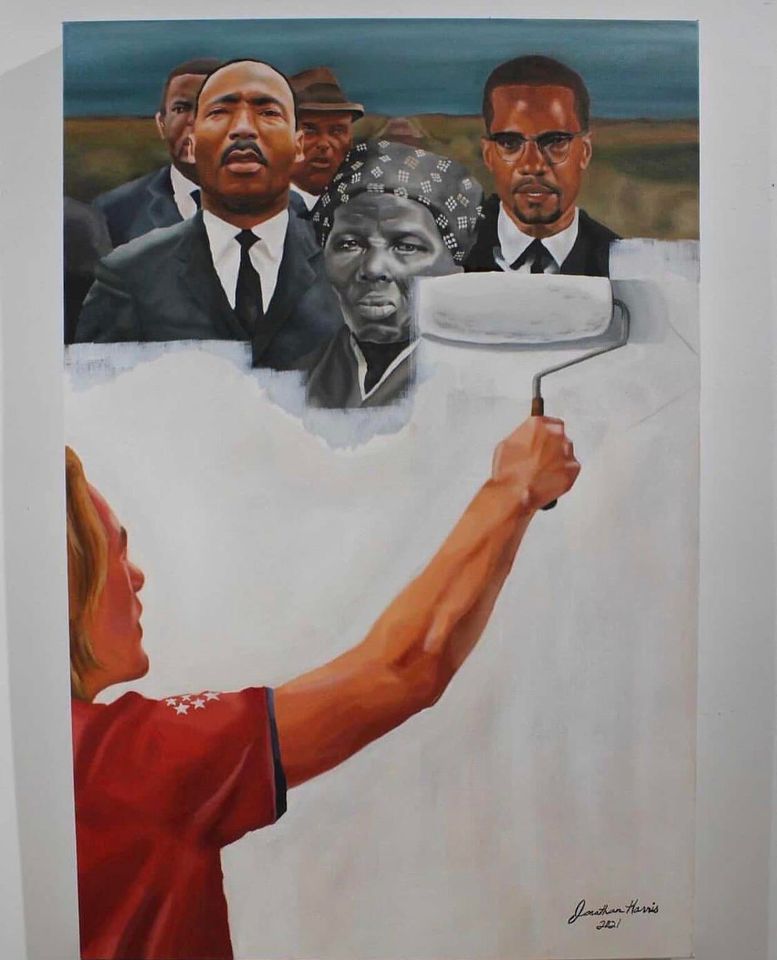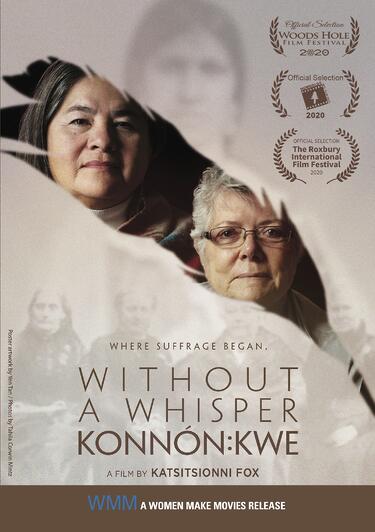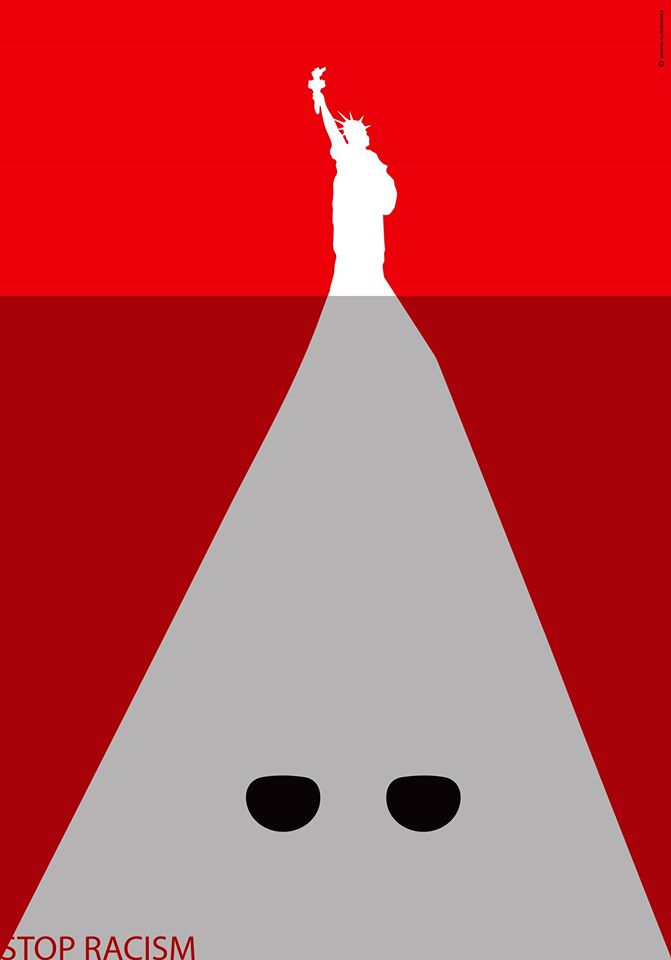Tidbits - Nov. 25, 2021 - Reader Comments: Rittenhouse Verdict - Danger for Country; Removal of Gosar; Cubans Don’t Want Regime Change; Public Libraries; Tolstoy, Gorki, children's books; Dan Georgakas - R.I.P.; Native American History and Life; more...
Re: 'Heartbroken & Angry': Anthony Huber's Parents React to Kyle Rittenhouse Verdict (Harry Rado; Baron Urias)
Re: 'Saddening, Infuriating, and Utterly Unsurprising': Rittenhouse Acquitted (Craig Gauthier; Eva C Bowen)
Judge Schroeder in his Other Robe -- cartoon by Rex A. Jones
Refusing to see -- cartoon by Mike Luckovich
Re: When Everything Is “Self-Defense” - And everyone gets a gun. (Eileen Oxendale; Carlos Chapo Lavergne; Hector Mendez Alvarado)
Instructions to the Jury -- cartoon
Re: House Votes to Censure and Remove Gosar from Committees Over Violent Video Targeting AOC and Biden (Charlie Hogue; Richard Paul Krall)
Critical Race Theory - An Artist's Perspective - Jonathan Harris
Re: Let's Find Alternatives to Striking (Cecile Leneman)
Re: Public-Private Partnerships Are Quietly Hollowing Out Our Public Libraries (Eleanor Roosevelt; Bookworms; Sonia Cobbins)
Re: Cubans Don’t Want Regime Change (Jonathan Nack; Paul Eichhorn; Dave Posmontier; Lee Zaslofsky)
Re: ‘Die Linke Needs to Focus On its Core Topics, Namely Social Justice and Peace’ (Jay Mazur)
Re: The Amazon Army and the 1919-1922 Kansas Coal Strikes (John Aldis)
Re: Tolstoy vs. Gorky: Why Russian Intellectuals Had Very Different Visions of Utopia (Mike Liston; Bookworms; Victor Kane)
Re: The Italian Communist Whose Radical Children’s Books Shaped a Generation (Daniel Millstone)
Re: How Netflix’s Adaptation of Passing Reflects the Novel’s Time — and Ours (Jose Luis Medina)
Dan Georgakas - R.I.P. (Michael Steven Smith)
Austrian city swears in first-ever Communist mayor (Stan Nadel)
Resources:
7 Must-See Films on Native American History and Life (Facing History & Ourselves)
Buy Less, Share More (The Story of Stuff Project)
Poster of the Week – Acquittal in Kenosha (Center for the Study of Political Graphics)
Buffy Sainte-Marie postal stamp planned by Canada
Re: 'Heartbroken & Angry': Anthony Huber's Parents React to Kyle Rittenhouse Verdict
"Today's verdict means there is no accountability for the person who murdered our son. It sends the unacceptable message that armed civilians can show up in any town, incite violence, and then use the danger they have created to justify shooting people in the street. We hope that decent people will join us in forcefully rejecting that message and demanding more of our laws, our officials, and our justice system."
Harry Rado
Posted on Portside's Facebook page
=====
The judge in this case bears full responsibility for it's outcome. He was Rittenhouse de facto attorney.
Baron Urias
Posted on Portside's Facebook page
Re: 'Saddening, Infuriating, and Utterly Unsurprising': Rittenhouse Acquitted
Was not surprised, at all, this is the real world we are living,
Craig Gauthier
Posted on Portside's Facebook page
=====
Rittenhouse went there looking for a fight! He got what he wanted...to kill someone he disagreed with! Yes, this verdict sets the stage for more "accepted" vigilantism!!
Eva C Bowen
Posted on Portside's Facebook page
Judge Schroeder in his Other Robe -- cartoon by Rex A. Jones

Rex. A. Jones
November 16, 2021
kartwonz
Refusing to see -- cartoon by Mike Luckovich

Mike Luckovich
November 23, 2021
Atlanta Journal-Constitution
Re: When Everything Is “Self-Defense” - And everyone gets a gun.
If this does become an degree of self defense by the jury , it will open a whole can of worms on validating carrying guns in a provocative manner and killing in the name of self defense. Oh I forgot that is only if you are white . Black children playing with toy guns in a park well that is different.
Eileen Oxendale
Posted on Portside's Facebook page
=====
"The Supreme Court, on the other hand, is poised to ensure that in the future, juries will be asked, again and again and again, to decide how things should go when everyone had a gun, everyone else wanted to use it, everyone knew their intentions were good, but suspected everyone else was a danger. How do we act as a society when absolutely everyone is always in fear of their life? Welcome to the future. It’s already here."
Carlos Chapo Lavergne
Posted on Portside's Facebook page
=====
Self defense??? Maybe just maybe it is more like “Tell me where is the protest so I can hunt my rights”
Hector Mendez Alvarado
Posted on Portside's Facebook page
Instructions to the Jury -- cartoon

Republicans have deserted decency and this country.
Charlie Hogue
Posted on Portside's Facebook page
=====
Criminal hate crime charges are in order. Terrorism is also a legitimate charge in this case. You or I would be having a hard time making bail and no chance to win a case considering the undeniable evidence.
Richard Paul Krall
Posted on Portside's Facebook page
Critical Race Theory - An Artist's Perspective - Jonathan Harris

Jonathan Harris
Re: Let's Find Alternatives to Striking
(posting on Portside Labor)
Sweden is a democracy. These words may not apply at all to a fascist state.
Cecile Leneman
Re: Public-Private Partnerships Are Quietly Hollowing Out Our Public Libraries
Hideous neoliberal dystopia? We're soaking in it.
Eleanor Roosevelt
Posted on Portside's Facebook page
=====
"It claims to take failing or shoddy public institutions and miraculously turn them around through its superior understanding of how things should be run — the same-old, same-old of private interests trying to edge out public goods."
Bookworms
Posted on Portside's Facebook page
=====
It can be so blatant. Our wonderful community library with high usage by a diverse population was torn down, supposedly because it lacked good enuf air conditioning. Then a new building was built on the site by the developer Bruce Ratner. Meanwhile Ratner married the head of Brooklyn Public Libraries, Linda Johnson. Meanwhile Ms, Johnson-Ratner has no expertise whatsoever in library science or management. She is a product of the Bill and Hillary three strikes, workfare, Goldman Sachs, privatizing cool dude veneer of corporate democrat.
It Gets Personal, But This Gossip Is, In Fact, Real News About The Business of Selling Libraries- Two From That Constellation of Library-Selling Stars Hook Up As A Couple: Bruce Ratner and Brooklyn Library President Linda Johnson– Guess Where?
Citizens Defending Libraries
January 31, 2019
Sonia Cobbins
Posted on Portside's Facebook page
Re: Cubans Don’t Want Regime Change
“I was out protesting on July 11,” a young mother in Old Havana told me. “But since then, I’ve been weighing the pros and cons. The food situation here is terrible — we have to stand in lines for everything. On the other hand, we are safe. People don’t have guns and go around killing each other; the police don’t shoot people; we don’t have to worry about our children when they are outside playing, and they get a good education for free. If this government really collapsed, I’m afraid we might lose more than we gain.”
Jonathan Nack
Posted on Portside's Facebook page
=====
Cuba, with few resources, has done a hell of a lot better than all the countries we "brought democracy to" in the same time period.
Perhaps it is time to end the blockade and examine what is wrong with ourselves.
Paul Eichhorn
Posted on Portside's Facebook page
=====
The US had no problem when Cuba was controlled by a corrupt murderous dictator named Batista who was friendly with US business interests.
Dave Posmontier
Posted on Portside's Facebook page
=====
Maybe they prefer universal free health care; free college tuition, and well organized responses to hurricanes and other natural disasters.
None of those is available in America; but the US has more bombs and bombers and aircraft carriers than anybody else. Wow.
Lee Zaslofsky
Posted on Portside's Facebook page
Re: ‘Die Linke Needs to Focus On its Core Topics, Namely Social Justice and Peace’
Describing potential voters as clientele shows a real split between party professionals and the people, or is this just a bad translation.?
Jay Mazur
Posted on Portside's Facebook page
Re: The Amazon Army and the 1919-1922 Kansas Coal Strikes
Interesting. "...brutal Red Scare repression..." following the First World War. I did not know that.
And then following the WW-II.
I wonder what specific political, social, and cultural dynamics were causing that to happen.
John Aldis
Posted on Portside's Facebook page
Re: Tolstoy vs. Gorky: Why Russian Intellectuals Had Very Different Visions of Utopia
I've long been fascinated with Russian literature, in fact, since high school and I've read many of the Russian classics in both Russian and in good English translation. War and Peace, by Tolstoy is by most certainly the greatest novel in western literature but in my opinion-I've read most of Tolstoy-he was a political punk. Yes, a great artist but that was it. and most definitely, a poor husband. As for Gorki, I can't think of a better example of excellent biographies than My Childhood, My Apprenticeship and My Universities. I've read My Childhood in the original Russian-best I can tell, the other two books I haven't as yet located. Gorki was a great heart and more politically astute than Tolstoy but like Tolstoy, his strength was in art, not politics and he made mistakes.
And why not? Who of us can read the future, who of us can foretell, despite the best of our intentions, what will work in a new system and what won't? A new world based on the principles of socialism is a word we can't know until we screw up and screw up again. Yes, there will be mistakes, most assuredly, but I can say this with great certainty, if not for the great crimes of the West, the attempts to strangle a new order in its very infancy, the wars, the blockades, sanctions and so on, the reactionary socialism that we saw in Stalin's USSR would not have been. You want to blame those for the mistakes of new socialism, especially those crimes committed despite the best of intentions, look to the black hearted criminal behavior of modern slave masters such as Bezos and Unkie Warren,
Mike Liston
=====
"As most European monarchies made way for constitutional democracy, Russia remained under autocratic rule. Unable to raise their voice in congress, Russian thinkers relied on pen, paper, and printing presses to figure out how society could be improved. Their combined efforts gave way to what literary scholars now refer to as 'sociological literature'."
Bookworms
Posted on Portside's Facebook page
=====
Another great article from Portside https://portside.org/2021-11-21/tolstoy-vs-gorky-why-russian-intellectu… Tolstoy vs. Gorky: Why Russian Intellectuals Had Very Different Visions of Utopia
The insurmountable contrasts between their visions help explain Russia’s stunted development and hint at its destructive future.
Victor Kane
Posted on Portside's Facebook page
Re: The Italian Communist Whose Radical Children’s Books Shaped a Generation
Thanks Jay. I had never heard of this guy until I saw this Portside https://portside.org/2021-11-22/italian-communist-whose-radical-childre… post. Thanks for adding to my literary education.
Famous in Italy, Rodari Reaches U.S. Shores With ‘Telephone Tales’
The children’s book writer never caught on in America, partly because of his Communist Party ties, but the English-language release of his masterpiece could change that.
September 5, 2020
New York Times
Daniel Millstone
Posted on Portside's Facebook page
Re: How Netflix’s Adaptation of Passing Reflects the Novel’s Time — and Ours
(posting on Portside Culture)
"Passing", based on Nella Larsen's 1929 novel, comes to life in black and white. The result is cool, elegant, and devastating, a film as tightly woven and plaintive as the source novel itself. It’s an artifact of its time, both 1929 and in 2021, when the questions around identity have morphed and shifted but are still relevant as ever. And they still leave us, individually and as a society, feeling uneasy about where we stand in relation to one another. Passing captures that feeling and challenges today’s audience to dwell with the discomfort, and wonder what it might mean to live a different way.
Jose Luis Medina
Posted on Portside's Facebook page
Dan Georgakas died just past midnight yesterday, November 22.
We lost Dan Georgakas yesterday. Heart failure. He was 83. Dan was a dear long time friend of mine and Debby’s going back almost 50 years.
Dan established Smyrna Press and published Michael's first book, a memoir titled “ Notebook of a 60s Lawyer” and then a second one of essays called “Lawyers You’ll Like”. Why did he call it Smyrna? Because Dan thought Homer came from Smyrna.
He took a lifetime interest in things Greek. When he died he was the editor of two Greek magazines. He wrote a memoir called “My Detroit: Growing Up Greek and American in Motor City”.
He was also interested in film and founded and edited “Cineaste” magazine, an important publication to this day.
Dan’s book “Detroit: I Do Mind Dying”, written with Marvin Surkin, on Black syndicalists in the auto industry in Detroit, has been widely read and appreciated and has been in print for over 40 years. A third edition of “The Encyclopedia of the American Left”, edited with Paul Buhle and Mari Jo Buhle is about to come out. Altogether he wrote nine books.
He taught at a number of colleges and in the prison system in New Jersey as well as to union workers. in the IBEW.
Dan Georgakas was truly a man of letters. And he did it on his own terms. He was quite thoughtful and astute. Politically he was an anarchist, personally he was a kind person, a faithful friend, a reliable and witty correspondent.
In a recent letter he wrote that “The US seems heading for permanent decline. Not in the manner we intended.” I agree with him. But let’s hope we are wrong and let’s continue his legacy of scholarship and commitment.
Dan Georgakis, Presente
Michael Steven Smith
Kerhonkson, New York
November 23, 2021
Austrian city swears in first-ever Communist mayor
November 17, 2021
Deutsche Welle
The Austrian Communist Party came in first in Austria's second-largest city, Graz, a surprise win in municipal elections. Newly elected Mayor Elke Kahr said she would focus on housing and social policies.
The city council in the Austrian city of Graz voted to elect Elke Kahr as its mayor on Wednesday, officially becoming the first communist leader of a major city in Austria.
The previous mayor of Graz, Siegfried Nagl, was a member of the People's Party and had held the post for 18 years. On Wednesday, Graz's city council elected Kahr with 28 of 46 votes.
Kahr is a member of the Austrian Communist Party, which unexpectedly won the municipal election in Graz, with 28.9% of the vote, ahead of the center-right People's Party, with 25.7%.
Graz is Austria's second-largest city after the capital, Vienna, and its government has a proportional representation electoral system that allows parties with more than 10% in the government.
For decades, the Communist Party has been an important political force at the local level in Austria and Kahr herself has been a member of the party for almost 30 years.
Kahr pledges new housing policy
Kahr had served as Graz councilor for the past 16 years and had been involved in transportation policy for the city from 2017 until her election as mayor. She has been known to be passionate about housing and social policy.
The 60-year-old said in her first speech as mayor that she would be committed to a new housing plan for the city.
Her party currently leads an alliance with the Greens and the Social Democratic Party. The bloc has already promised to set limits to the profit-driven building activity in the city.
The governing coalition has also said it would strongly support social and environmental measures. One policy they have touted is the pledge that every child in Graz be granted a bicycle, although it is still not clear how the city will provide them.
"Mobility behavior later in life is shaped during childhood," said Manuela Wutte of the Green Party, in support of the measure.
Stan Nadel
7 Must-See Films on Native American History and Life (Facing History and Ourselves)

By Kaitlin Smith
November 22, 2021
Facing History & Ourselves
Here at Facing History, we see heritage and awareness months as opportunities to deepen our knowledge of and attention to the histories and contemporary experiences of historically marginalized communities. However, the focus on celebrating these communities over one particular month can further marginalize the very experiences we are hoping to elevate. With this in mind, what follows is an invitation to engage with important themes raised by Native American Heritage Month this November and throughout all of the months of the year.
The experiences of Native American peoples are central to the fabric of American history and contemporary life, but stories that capture them are seldom elevated on the public stage. Though films like Pocahontas, Dances with Wolves, and The Last of the Mohicans have offered prominent depictions of Native American people, there is much that such narratives leave out, obscure, and/or entirely misrepresent. Moreover, there are vital stories to tell about our collective past and complex present from the perspectives of Native American peoples. Staff at Facing History are embracing the opportunity to expand our knowledge of the past and present as it has been lived by Native American peoples through the medium of film, and we invite you to watch along with us and share your learnings.
The seven documentaries series listed below cover wide-ranging subject matter including Native American peoples’ roles within and perspectives about the film medium, the women’s rights movement, K-12 education, political leadership, literary arts, musical performance, and language protection efforts.
Here is an excerpt from the description of each film or series
Facing History and Ourselves
16 Hurd Road
Brookline, MA 02445
Buy Less, Share More (The Story of Stuff Project)
Our team at The Story of Stuff Project has been thinking a lot recently about what it means to act like a citizen, or a community member or human being, rather than a consumer. No doubt that’s because it’s that time of year when we’re pushed to flex our consumer muscles by spending a ton of money on things we don’t really need.
Maybe you’ve been asking yourself the same question: are we going to spend another holiday season buying more Stuff? Or might we say NO to a value system based on waste and overconsumption and focus instead on togetherness, sharing and hope?
In some ways, the global economy has answered that question for us.
As you’ve probably heard, we’re in the midst of a massive supply chain crisis, and everything from consumer goods like TVs and throw pillows to necessities like food and medicine are held up at ports and distribution centers for weeks, if not months. In fact, in the first half of 2021, global supply chain disruptions increased by a jaw-dropping 638%.
The coronavirus pandemic continues to teach us hard but important lessons: about the importance of public health, essential workers, social safety nets -- and now, the fragility of a globalized economy dominated by multinational corporations trying to maximize profits at any cost.

While the media has been focused on the threat this poses to holiday shopping -- the horror! -- the real story is more complicated...and telling. Because the manufacturing and distribution of basic human necessities require many of the same resources as the consumer economy, and travel through the same shipping routes, we’re seeing priorities get all mixed up: our shopping habits are dictating which goods are allotted the limited space available on trucks and loading docks, edging out even the essential goods communities need.
It’s become all too clear that the instant gratification of online shopping and next-day delivery have steep costs, and our systems for moving Stuff around the world are not able to keep up. Costs are piling up on the other side of Stuff’s lifecycle, too: in 2021, the weight of discarded electronics will weigh more than the Great Wall of China -- which just happens to be the heaviest man-made object on Earth.
The Story of Stuff pinpointed years ago that our sense of happiness and fulfillment doesn’t come from shopping. That’s a lie perpetuated by a market that gets you to spend money out of boredom, sadness, or obligation.
But it doesn’t have to be that way.
That’s why we’re expanding our annual Buy Nothing Day campaign to Buy Nothing November. Check out our campaigns on Facebook, Instagram, and Twitter and join us as we opt-out of shopping and opt-in to family, community, friends and neighbors. Write back, or leave us a comment on social media to share your favorite alternatives to shopping. We love hearing from you!
This holiday season, let’s ask ourselves how we show up in the world: are we consumers, or are we citizens?
Thankful for you,
The Story of Stuff Team
442 A Walnut Street, #272
Berkeley, CA 94709
Email us at info@storyofstuff.org or call us at (510) 883-1055
Poster of the Week – Acquittal in Kenosha (Center for the Study of Political Graphics)

Damian Klaczkiewicz
Digital Print, 2020
Poland
|
|
- Prosecutors Cannot Call Those Shot by Kyle Rittenhouse 'Victims.' But 'Looters' is OK (NPR)
- Kyle Rittenhouse Trial Judge's Phone Rang With Lee Greenwood Trump Rally Theme (Newsweek)
- Kyle Rittenhouse, American Vigilante (The New Yorker)
Center for the Study of Political Graphics
3916 Sepulveda Blvd, Suite 103
Culver City, CA 90230
Buffy Sainte-Marie postal stamp planned by Canada

Commemorative postage stamp latest honour for North America’s best-known Indigenous musical artist.
Canada Post has unveiled a new stamp in tribute to internationally-renowned activist, musician and visual artist Buffy Sainte-Marie.
Sainte-Marie, from Piapot Cree Nation in Saskatchewan, has used her platform as a force for change and is still performing at the age of 80.
APTN National News (Canada)
November 18, 2021


Spread the word